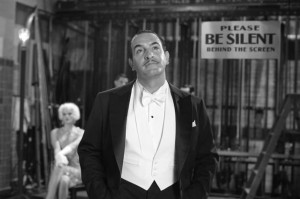 One of my favorite movies of all time is the director’s cut of Blade Runner. The director’s cut is a moody, dark tone-poem that lets the stark beauty of its setting and characters speak for itself. The theatrical version, though, is terrible. It’s a far different movie for one very important reason- the theatrical version of Blade Runner features voice-overs that explain precisely what is happening on screen, and it utterly kills the mood that the sets, music, costumes, and the rest of it try so hard to create. The theatrical version tells, and fails. The director’s cut shows, and succeeds.
One of my favorite movies of all time is the director’s cut of Blade Runner. The director’s cut is a moody, dark tone-poem that lets the stark beauty of its setting and characters speak for itself. The theatrical version, though, is terrible. It’s a far different movie for one very important reason- the theatrical version of Blade Runner features voice-overs that explain precisely what is happening on screen, and it utterly kills the mood that the sets, music, costumes, and the rest of it try so hard to create. The theatrical version tells, and fails. The director’s cut shows, and succeeds.
Walk into any writing class and one of the first things that the instructor will tell you is show, don’t tell. That’s repeated over and over again to the point where it’s become somewhat of a hackneyed phrase that everyone says, and few people actually think about. However, it is utterly and totally true.
Yesterday I saw The Artist, a film about a movie actor in the late 1920s and early 1930s who weathers the transition from silent films to talkies. The central self-aware gimmick of The Artist, is that it itself is a silent movie (mostly). Most of the characterization is told with the exaggerated, broad body language of the silent era. The lead does a heroic amount of acting with his eyebrows and mustache, affecting the sort of big, visible facial expressions that can convey emotions without saying a word. The film is gimmicky, but it’s deft and charming enough that it works. Despite the leaden-sounding title and potentially highfalutin’ concept (being a modern silent film) it’s actually extraordinarily light on its feet and charming. It’s a movie that revels in the action thrillers, swashbuckling hijinks, and undiluted showmanship of old Hollywood. Give it a watch. (Bonus: One of the characters is probably the best movie dog I’ve ever seen. Normally I can’t stand animals or children in movies, as they are not presented as developed characters, but rather as emotional cheap-shots. The dog in The Artist, though, is an adorable little micro-badass with awesome comic timing.)
Coming out of The Artist, I immediately thought of Wall-E and Rise of the Planet of the Apes. Neither are silent movies in that they have title cards and whatnot, but, like The Artist, both are films that tell a substantial part of their stories through body language, facial expressions, and action. Wall-E features nonvocal robot characters, and Apes features, well, lots of apes. Like The Artist, both films are also excellent. They show, they don’t tell.
Another two examples I’ll mention: I’m currently playing through Shadow of the Colossus, an extraordinarily empathy-ridden, sad video game that has practically no dialogue. I also recently re-watched Toy Story 3, and was brought to tears by the scene at the end where the main characters bravely stare death in the face, but don’t say a word. The dialogue in the Toy Story movies is extremely well done, but at that emotionally pivotal moment the screenwriters and director knew that the right thing to do was to not say a word, and let Woody and Buzz’s encounter with death speak for itself.
What makes all of these media good is that they know that they have multiple ways of communicating with the audience. Everything I mentioned above all uses character design, movement, a cocked eyebrow here, an agape mouth there, to say something. What’s more, the media in question trust in that communication style. They don’t show a smiling guy and then have someone say “he looks happy” or add any kind of intelligence-insulting exposition. They don’t attempt to validate nonverbal communication with wordy explanation, or impede on the emotional environment by spelling out what’s going on.
Media that show rather than tell are confident, witty, and have a diversity of ways in which they connect with the audience. Media that do that are better, and more interesting, be they films about movie stars or stories of sentient robots. Whatever genre, they take the advice of every college writing instructor ever, and it turns out to not a tired truism, but utterly worthwhile.